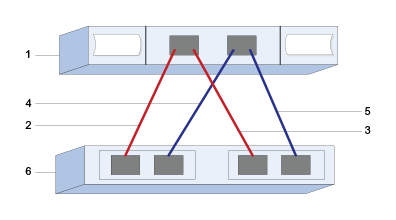Perform SAS-specific tasks in E-Series - Windows
 Suggest changes
Suggest changes


For the SAS protocol, you determine host port addresses and make the appropriate settings.
Step 1: Determine SAS host identifiers—Windows
Find the SAS addresses using the HBA utility, then use the HBA BIOS to make the appropriate configuration settings.
Review the guidelines for HBA utilities:
-
Most HBA vendors offer an HBA utility. Depending on your host operating system and CPU, use either the LSI-sas2flash(6G) or sas3flash(12G) utility.
-
Download the LSI-sas2flash(6G) or sas3flash(12G) utility from your HBA vendor's web site.
-
Install the utility.
-
Use the HBA BIOS to select the appropriate settings for your configuration.
For setting recommendations, see the Notes column of the NetApp Interoperability Matrix Tool.
Step 2: Record your configuration
You can generate and print a PDF of this page, and then use the following worksheet to record your protocol-specific storage configuration information. You need this information to perform provisioning tasks.

Host identifiers
| Callout No. | Host (initiator) port connections | SAS address |
|---|---|---|
1 |
Host |
not applicable |
2 |
Host (initiator) port 1 connected to Controller A, port 1 |
|
3 |
Host (initiator) port 1 connected to Controller B, port 1 |
|
4 |
Host (initiator) port 2 connected to Controller A, port 1 |
|
5 |
Host (initiator) port 2 connected to Controller B, port 1 |
Target identifiers
Recommended configurations consist of two target ports.
Mapping host name
Mapping host name |
|
Host OS type |


